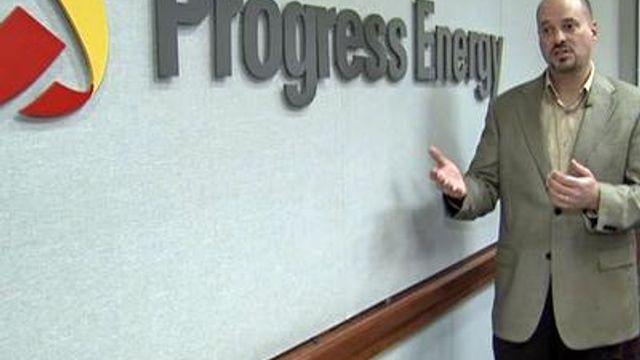5 On Your Side
Facing a power shut-down? Your utliity can help
Don't wait until you're faced with losing your electricity to get help. Local utilities say they can help you manage your payments, and local organizations can, too.
Posted — UpdatedRALEIGH, N.C. — In two years, Teyeani Diggs has been laid off from two jobs in Research Triangle Park – both outsourced to Asia.
He lost his home and one of his cars, so now the father of two is doing what he's done every day for months: searching for a job to help make sure his apartment doesn't go dark.
"Weeks turn into months, and before you know it, what you were depending on dries up and you've got nothing," Diggs said. "I've never been without work, since I was 17 years old."
Progress Energy powers 1.4 million homes and businesses, like Teyeani Diggs', across North Carolina. But every month, the company shuts off an average of 10,000 of them because customers don't pay their bills.
Spokesman Mike Hughes says the utility is taking a more proactive role early in the process to help customers avoid disconnections. It has seen a 5 percent decrease in disconnections from 2007 to 2008.
"It's not something customers need to be ashamed of, it's happening to a lot folks," said Mike Hughes, a spokesman for the utility company. "What they need to do is call our customer service center as early in the process as possible."
He says there are alternatives to cutting off electricity, such as extended no-penalty payment plans and an equal-payment plan, which splits an estimated yearly bill over 12 months.
But customers have to notify the company before they receive a disconnection notice, Hughes says.
It will also help them avoid a penalty of several hundred dollars in disconnect fees.
Progress Energy also has an "Energy Neighborhood Fund," in which customers contribute on their monthly bills and the company matches. Program funds are administered through local social services offices.
Ken Kernodle, a spokesman for Duke Energy, says the utility also has payment plans with no penalty. It also has a similar assistance program called "Share the Warmth," which can be used to pay heating costs, regardless of the energy source.
"When financial situations come to our customers, we take that seriously," Kernodle said. "When we have to shut off power, we take that seriously, and we offer some options to hopefully to help them get through these times."
Neither utility will disconnect power when temperatures dip below freezing.
Another option for financial assistance: nonprofit community programs, such as the Christian Community in Action program in Cary or Raleigh's First Presbyterian Friendship Fund.
Facing a final shut-off notice, Diggs avoided the dark by turning to the Friendship Fund, which for 50 years, has helped community members pay their utilities. It also provides financial counseling. Clients must call to get an appointment and must provide their utility bills and proof of residency.
The program serves nearly 500 individuals annually, and from January to September of last year, disbursed more than $75,000 in paid bills for an average of $159.22.
"For someone to take care of you out of compassion, not wanting anything back is always a good feeling," Diggs said.
• Credits
Copyright 2024 by Capitol Broadcasting Company. All rights reserved. This material may not be published, broadcast, rewritten or redistributed.





